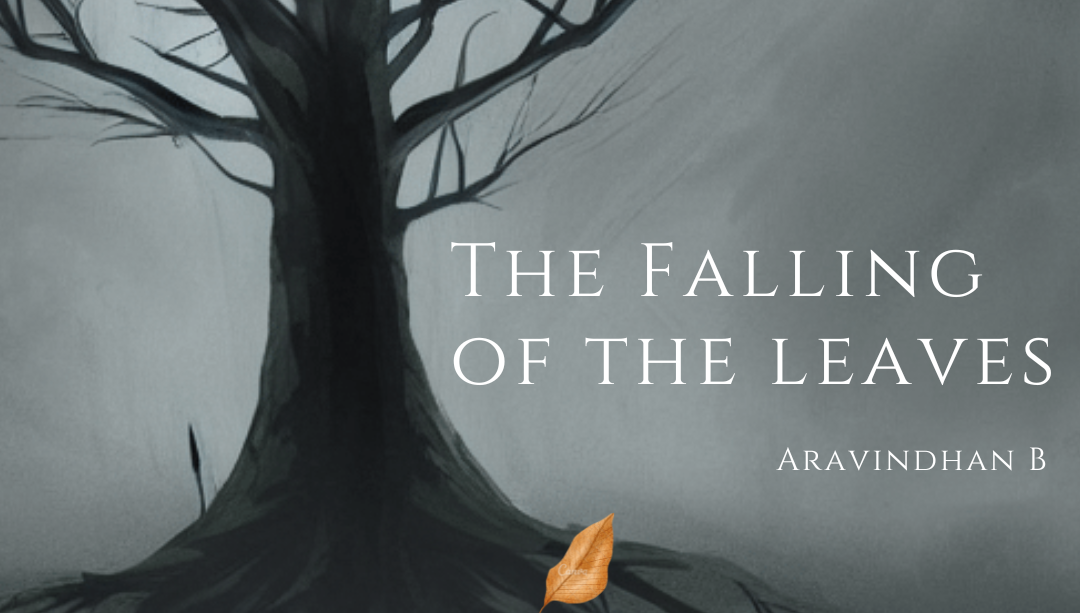The hour of the waning of love has beset us,
And weary and worn are our sad souls now;
Let us part, ere the season of passion forget us,
With a kiss and a tear on thy drooping brow.
— W. B. Yeats
The Falling of the Leaves (1889)
Lately, I’ve been thinking about death.
No. I won’t go as far as contemplating doing that but think about it. Gaze at it from a safe distance as if watching a wild animal behind a cage.
We all know death will come for us, like it or not. Someday, you will get close to the cage, or the beast itself, will break the cage, and finish you in one clean swipe of its razor-sharp claws.
So, death brings finality. The curtain closes one last time. The musicians pack their instruments. The crowd disperses. Finally, the lights go out, and all that remains is eternal darkness and silence.
It’s not unusual to see someone breathing a day before and ceasing to exist the next day. It is almost like a monologue stopping mid-sentence and the curtains closing haphazardly.
The crowd is surprised as they didn’t get to see the whole story. They feel let down for not getting the closure they wanted–not getting the closure the lead actor wanted.
But, eventually, they move out to see another play at another theatre.
That’s how I perceive death. No doubt everyone thinks of it that way. As the sudden appearance of nothing. Yet there’s something more to it.
Why do we all cry when we know it’s inevitable? What makes this law of nature seemingly unbearable? A tree strips itself of the leaves one by one, only to put on new shades of green.
Is that the death of a tree or the birth of a new one? If it’s a birth, shouldn’t we rejoice at the sight of it?
Maybe we see death as the final full stop in a mystical novel. We look at death as the bare tree. But death isn’t any of these, yet it still is.
Death appears right from the first tiny blotch of pale brown on the edge of a leaf. It’s not the final full stop but the feeble sadness, the melancholia of the lines leading to it.
In real life, death is days, months, or even years before the final breath.
It starts off not being the person one used to be. The things that brought a smile don’t light up the face anymore. Everything one wanted, imagined, and yearned for slowly slips like grains of sand from a fist and drifts away with the draft of the cold wind. The dream of a happy life becomes strange and otherworldly–which was, just some time ago–looked within reach.
Now, that’s the true face of death.
Just like the barren tree blossoming with new leaves isn’t that tree anymore, the family that gave up one of their own to the fair but morbid law of nature isn’t that family anymore.
Sure! Flowers still break out of their buds. The fragrance still wafts in the air. But the leaves sometimes brush against the bark that is still part of the old tree, and it just cannot help but remember what it used to be.
Metaphors can sometimes be good to read but fail to drive the thought home. That’s why it’s necessary to see death through the lens of real life.
A neighbour of mine, let’s call her Sakthi, had a brother–let’s call him Ajay–who was going through hell. In medical terms, it was called Brain Cancer.
What started as frequent visits to the hospital, tests, consultations, more tests, and struggles–both financial and emotional–finally arrived at a point where for the most part, Ajay was confined to a wheelchair.
His 1.5 lakh paycheck at the end of the month was only helpful to pay his bills, and what remained was set aside for any upcoming treatment.
He slowly lost strength physically. Then, the sentences he spoke were reduced to words, and then the words became indiscernible moans.
Obviously, Sakthi couldn’t bear seeing her brother with whom she shared most of her childhood. Who could not break down when someone close was slowly giving up on their life? Forget Sakthi for a minute. How could her mother see her grown man debilitate into a child needing help for eating, sleeping, and excreting?
She would gladly take care of him because he was still his child. But, how could she do that when she was also becoming a child yearning for someone to take care of her?
Well, Sakthi had to carry on even though her feeble heart could break at the slightest touch. That’s how life is. You know the inevitable will happen sooner than expected but you still need to put up a brave face.
You start building hope and bullying your mind to think of positive thoughts when you know for sure that it amounts to nothing. Yet you must. Not for you. Not even for the one about to meet the inevitable. But, for the ones around you.
That is what Sakthi did. She carried on with that sense of uncertain hope every day.
The leaves were slowly taking on a pallid look. And one day, the leaf bid goodbye to the tree and drifted off with the wind to some mystical world above.
What she did next was very obvious. She cried. She was not a sister anymore. Her mother did not even know her son was no more for a night since the family had decided to carefully break the news of her son’s death the next morning.
She also wailed when she saw her son lay still with closed eyes. She remembered the last time he did that, which was in her womb, and was starting a life. Now, he was ending it inside the primordial being’s womb.
Life had come full circle. Nature called it fair. Yet Sakthi and her mother couldn’t take it.
So, how can death be that “He was here yesterday but gone today” thing? Yet it is, and not just that.
If we ponder on this a bit more, a question emerges.
When does one REALLY die?
Is it when the searing columns of red-hot flames lick their mortal bodies? Is it when they are nothing but ashes? Or is it when someone takes a coffee into their bedroom only to realise they are not in bed and never will be?
It’s neither of the above. The answer is concealed in another question: How long do we cry for the ones we love?
At first, the pain and tears are so profound that the emotional loss physically hurts us. It’s like a bellowing fire consuming anything in its way. But, with time, the fire dwindles into a smouldering pile of ashes and eventually into ashes.
There’s something else that wanes with the pain and tears–the memory of the one you love.
When you cry all your memories out and have absolutely nothing of them anymore, that’s when the person is REALLY dead.
That explains how death is an instant but also a benign presence, days, months, or years before that instant and even stretching out as could haves and would haves in the future until the person is not even a memory anymore.
You might wonder how there could be a spirited way to end something usually shunned by most as unpropitious. But there is!
All you can do is live one day at a time and do so with no regrets. Just pray that when death finally gets you, you’d be having a dream so beautiful that you never wish to open your eyes.
Loved it? Why not share it?

